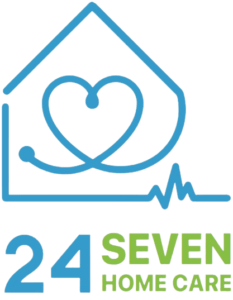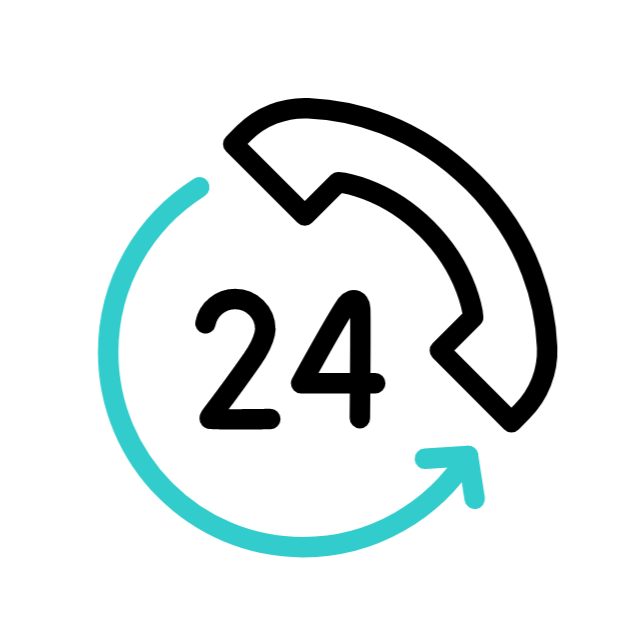The Evolution of Home Healthcare in Dubai: A Comprehensive Guide
Table of Contents
Dubai, commonly dubbed the “City of Gold,” is celebrated for its luxurious lifestyle and premier facilities. Yet, behind the sparkle and opulence, there is an emergent healthcare industry, with a particular emphasis on home healthcare.
The need for home healthcare in Dubai has escalated markedly as of late, propelled by a growing elderly population, a leaning towards more personalized healthcare solutions, and advancements in healthcare technology. This detailed guide delves into the progression of home healthcare within Dubai, examining its present state, primary services offered, the regulatory environment, and its potential future developments.
The Rise of Home Healthcare
Over the past several decades, the healthcare industry in Dubai has seen remarkable expansion. This surge is largely due to the dedication of the government to ensure residents and tourists alike have access to high-quality health services. The of home healthcare options is a deliberate move aimed at improving the healthcare infrastructure as a whole.
Population Demographics
Dubai has witnessed a significant diversification and aging of its population. As of September 2021, the city has experienced an increase in its expatriate community, which includes a substantial number of seniors. This growth in the elderly population has spurred increased demand for healthcare services, especially those that provide comfort and convenience.
Changing Healthcare Needs
As society’s health care demands shift, there’s a noticeable increase in chronic illnesses such as diabetes, hypertension, and cardiac. These health issues often necessitate ongoing management and supervision, thereby enhancing the appeal of home health care services.
Key Services in Home Healthcare
In Dubai, home healthcare offers an extensive array of services designed to cater to the individual needs of patients. These services extend beyond conventional medical treatments to incorporate a variety of therapeutic, diagnostic, and support services. Key offerings include:
Nursing Care
Registered nurses and licensed practical nurses provide a range of services, including wound care, medication management, and IV therapy, all within the comfort of the patient’s home.
Physiotherapy and Rehabilitation
Physiotherapists help patients regain mobility and function, often after surgery or injury. They develop personalized exercise plans and offer ongoing support.
Home-Based Doctor Visits
Doctors can make house calls for consultations and medical assessments, reducing the need for patients to visit hospitals or clinics for routine check-ups.
Palliative and Hospice Care
Specialized teams offer compassionate care for patients with life-limiting illnesses, focusing on pain management and emotional support.
Pediatric Home Healthcare
Children with chronic illnesses or special needs can receive expert care at home, allowing them to be in a familiar and comfortable environment.
Diagnostic Services
Technological advancements have made it possible to provide various diagnostic tests, including blood tests, X-rays, and ultrasounds, in a home setting.
Pharmacy Services
Many home healthcare providers offer pharmacy services, ensuring that patients have access to their prescribed medications without leaving home.
Regulatory Framework
The Dubai Health Authority (DHA) is crucial in managing and supervising Dubai’s home healthcare sector. By 2021, the DHA had established detailed guidelines and rules to guarantee the high standards and security of home healthcare services. Key among these regulations are:
Licensing and Accreditation
Home healthcare providers must obtain licenses and accreditation from the DHA. This process involves rigorous inspections and compliance with established standards of care.
Training and Qualifications
Healthcare professionals working in the home healthcare sector must meet specific educational and training requirements set by the DHA. Continuous professional development is also encouraged.
Patient Privacy and Data Protection
Providers must adhere to strict confidentiality and data protection protocols to safeguard patient information and privacy
Quality Assurance
Regular audits and assessments are conducted to ensure that home healthcare services meet or exceed established quality standards.
Challenges and Opportunities
While the home healthcare sector in Dubai has grown significantly, it faces its fair share of challenges and opportunities:
Challenges
Staffing Challenges: Recruiting skilled medical personnel, including nurses and therapists, is often difficult due to their high demand in the sector.
Regulatory Adherence: Keeping abreast of the shifting rules and compliance requirements can pose a challenge for providers of home healthcare services.
Technology Implementation: Integrating advanced technological solutions, like telehealth and remote patient monitoring, involves substantial costs and extensive infrastructure improvements.
Opportunities
**Technological Advancements in Healthcare:** Ongoing improvements in telemedicine, gadgets for health tracking, and systems for remote patient monitoring create possibilities to enhance the quality of patient care and operational efficiencies.
**Medical Tourism in Dubai:** Dubai’s esteemed position as a center for medical tourism provides a lucrative opportunity for providers of home healthcare services to serve an international clientele.
**Public-Private Partnerships in Home Healthcare:** Joint ventures between public entities and private industries are paving the way for groundbreaking developments in home healthcare, offering broader service access.
Future Prospects
The future of home healthcare in Dubai is promising, with several trends and developments on the horizon:
Telehealth Expansion
The adoption of telehealth services is likely to grow, enabling healthcare professionals to provide consultations, monitor patients remotely, and offer real-time medical advice.
Artificial Intelligence and Data Analytics
AI-driven solutions and data analytics will play a vital role in predicting and preventing diseases, improving treatment outcomes, and optimizing resource allocation.
Aging Population
As Dubai’s population continues to age, the demand for home healthcare services will rise, necessitating investments in infrastructure and workforce development.
Health Tech Startups
The emergence of health technology startups in Dubai will drive innovation and introduce new solutions for home healthcare delivery.
The Rise of Home Healthcare
Population Demographics
The population of Dubai has been consistently increasing, with a large number of expatriates and retirees drawn to the region in search of a superior quality of life. This shift in demographics has created a growing demand for healthcare services that cater specifically to the needs of the elderly. As people age, they are more likely to experience chronic illnesses and depend more on healthcare services.
Changing Healthcare Needs
In Dubai, the healthcare environment is evolving from providing care on an as-needed basis to a more continuous care model. There’s a rising prevalence of chronic diseases such as diabetes, hypertension, and cardiovascular disorders, which require regular follow-ups, medication oversight, and modifications in lifestyle. To meet these changing demands, home healthcare services offer tailored, long-lasting care options.
Key Services in Home Healthcare
Nursing Care
Nurses specializing in home healthcare possess a high level of training and expertise, offering a comprehensive array of services. They are responsible for the administration of medications, the management of ongoing illnesses, and the provision of wound care. Furthermore, they offer support and educational guidance to both patients and their family members, addressing emotional needs as well.
Physiotherapy and Rehabilitation
Physiotherapists are essential in assisting individuals to recover from surgical procedures, physical injuries, or chronic conditions. They create personalized recovery programs and provide direct therapies that aim to enhance movement, alleviate pain, and improve overall function.
Home-Based Doctor Visits
Home health care services include a team of experienced doctors who provide in-home visits. This offering is especially beneficial to individuals who have trouble moving around or need routine medical evaluations. It allows them to get the necessary medical care promptly, without the difficulty of going to a hospital.
Palliative and Hospice Care
Teams specializing in palliative and hospice care deliver empathetic care at the end of life. Their primary concerns are managing pain, alleviating symptoms, and providing psychological support to ensure that both and their loved ones experience as much comfort as possible during these difficult times.
Pediatric Home Healthcare
Home healthcare tailored for children provides support to those with long-term illnesses, disabilities, or specific healthcare requirements. These services are designed to enhance life quality for young ones by allowing them to stay in their own comfortable and supportive home surroundings.
Diagnostic Services
Technological advancements in portable medical devices have made it feasible to conduct diagnostic tests in a home setting. This includes blood tests, X-rays, ultrasounds, and even electrocardiograms (ECGs), reducing the need for patients to travel to diagnostic centers.
Pharmacy Services
In many cases, home healthcare providers offer pharmacy services, ensuring that patients have access to prescribed medications promptly. This service enhances convenience and adherence to medication regimens.
Regulatory Framework
Dubai’s home healthcare sector operates within a stringent regulatory framework to ensure the safety and quality of services:
Licensing and Accreditation
Home healthcare providers must undergo a rigorous licensing and accreditation process administered by the Dubai Health Authority (DHA). This process involves meticulous inspections and adherence to specific standards of care.
Training and Qualifications
Healthcare professionals working in the home healthcare sector must meet stringent educational and training requirements set by the DHA. Continuous professional development is encouraged to keep up with evolving healthcare practices and technologies.
Patient Privacy and Data Protection
Providers must adhere to strict confidentiality and data protection protocols to safeguard patient information and privacy, aligning with international healthcare privacy standards.
Quality Assurance
To maintain high standards of care, regular audits, assessments, and monitoring are conducted to ensure that home healthcare services consistently meet or exceed established quality benchmarks.
Challenges
Workforce Shortages
The demand for skilled healthcare professionals often outpaces the available workforce, leading to recruitment challenges. Ensuring a steady supply of qualified nurses, therapists, and doctors remains a priority.
Workforce Shortages
The demand for skilled healthcare professionals often outpaces the available workforce, leading to recruitment challenges. Ensuring a steady supply of qualified nurses, therapists, and doctors remains a priority.
Regulatory Compliance
Staying compliant with evolving regulations can be complex and resource-intensive. Home healthcare providers must invest in ongoing training and adapt to changing requirements.
Technological Integration
While technological advancements present opportunities, integrating new technologies into home healthcare can be costly. Investments in telemedicine infrastructure and remote monitoring capabilities are essential but require careful planning.
Opportunities
Technological Advancements
The adoption of telehealth, wearable health devices, and remote monitoring solutions continues to grow. These technologies enhance patient care, reduce healthcare costs, and improve overall efficiency.
Medical Tourism
Dubai’s reputation as a medical tourism hub offers unique opportunities for home healthcare providers. Serving international patients in the comfort of their accommodations is a burgeoning niche market.
Public-Private Partnerships
Collaborations between the government and private sector can foster innovation and lead to the development of novel home healthcare solutions. Such partnerships may also improve access to services for underserved populations.
Future Prospects
Telehealth Expansion
The pandemic caused by COVID-19 significantly hastened the integration of telehealth technologies in Dubai, establishing them as a practical and favored method for delivering medical care. It is anticipated that telehealth services will keep growing, thereby enabling patients to consult with healthcare experts remotely and easing the load on traditional healthcare facilities.
Artificial Intelligence and Data Analytics
The use of artificial intelligence (AI) and data analytics in home healthcare is set to transform the way patients are cared for. By employing predictive analytics, healthcare professionals can pinpoint individuals at risk for chronic illnesses. Additionally, AI-enhanced decision support systems will improve the precision of healthcare providers in diagnosing diseases and advising on treatments.
Aging Population
As Dubai’s population ages, there will be a growing need for enhanced infrastructure and specialized care for the elderly. The delivery of home healthcare services will become crucial in meeting the specific medical requirements of the aging population.
HealthTech Startups
The rise of health technology enterprises in Dubai is set to propel innovation and introduce groundbreaking solutions. These enterprises might concentrate on domains such as remote health tracking, adherence to prescribed medications, and tailored healthcare services.
In wrapping up, the home healthcare landscape in Dubai has adapted to cater to the evolving medical requirements of its varied and expanding populace. This sector operates under strict regulations to guarantee the safety of patients and the quality of healthcare services. Facing both challenges and opportunities, technology will be crucial in defining the future of home healthcare.
As Dubai persists in establishing itself as a leading international healthcare hub, home healthcare will continuously be an essential element of its medical framework, providing accessible, personalized, and superior healthcare for both residents and tourists.
Population Demographics:
The population of Dubai is on the rise, fueled by both local inhabitants and expatriates who relocate there for work and residency. Within this diverse demographic is a notable proportion of older adults who require medical services. As the number of senior citizens increases, so does the necessity for healthcare provision, owing to the more frequent and complex health issues experienced by this age group, which often necessitates continuous medical attention.
Changing Healthcare Needs:
As the demographic of Dubai grows older, the healthcare requirements of its residents evolve as well. The focus is shifting from treating immediate, acute illnesses to long-term management of chronic diseases like diabetes and cardiovascular disorders, which necessitate ongoing supervision and care. Consequently, home healthcare has become crucial, enabling patients to get the necessary medical attention within the comfort of their homes.
Nursing Care:
In Dubai, home healthcare services utilize both registered nurses and licensed practical nurses deliver a range of medical treatments directly to patients in their residences. These services may encompass the administration of medications, wound care management, and the provision of intravenous (IV) therapy.
Physiotherapy and Rehabilitation:
Physiotherapists in the home healthcare sector help patients recover from surgeries, injuries, or illnesses by designing personalized rehabilitation plans and delivering hands-on therapy to improve mobility and reduce pain.
Home-Based Doctor Visits:
Patients can receive medical consultations and assessments from qualified doctors in the comfort of their homes. This is particularly beneficial for individuals who have difficulty traveling to medical facilities.
Palliative and Hospice Care:
Specialized teams provide compassionate end-of-life care for patients with terminal illnesses. They focus on pain management and emotional support to ensure patients and their families are as comfortable as possible during this challenging time.
Pediatric Home Healthcare:
Children with chronic conditions or special medical needs can receive specialized care at home, enabling them to remain in a familiar and supportive environment.
Diagnostic Services:
Technological advancements in portable medical devices have made it possible to perform diagnostic tests like blood tests, X-rays, and ultrasounds at a patient’s home. This reduces the need for patients to travel to diagnostic centers or hospitals.
Pharmacy Services:
Many home healthcare providers in Dubai also offer pharmacy services, ensuring that patients have access to the medications prescribed by their healthcare providers without needing to visit a pharmacy.
Artificial Intelligence and Data Analytics:
Integrating AI and data analytics into home healthcare will enable predictive analytics to identify patients at risk of developing chronic conditions and enhance decision support for healthcare providers.
Aging Population:
Dubai’s demographic shift towards an aging population will lead to increased investment in infrastructure and a focus on geriatric care, making home healthcare even more crucial in providing care for the elderly.
HealthTech Startups:
The rise of health tech startups in Dubai is set to enhance innovation and bring forth novel approaches to home healthcare services, which could elevate the standard of care and the experience of patients.
To encapsulate, home healthcare in Dubai has adapted to accommodate the varied health needs of its multicultural population. It operates under stringent regulations that guarantee top-quality care and safeguard patient safety. Both challenges and opportunities exist, with technology being a pivotal influence on the trajectory of home healthcare. As Dubai positions itself as a leading international hub for healthcare, home healthcare will continue to play a crucial role in offering accessible, tailored, and superior healthcare to both residents and visitors.
HealthTech Startups:
What is the history of home healthcare in Dubai?
Home healthcare in Dubai began to take shape in the early 2000s, driven by the growing demand for personalized medical care and the need to reduce hospital overcrowding. Initially, services were limited, focusing mainly on post-operative care and chronic disease management. Over the years, with advancements in medical technology and increased awareness, home healthcare services have expanded to include a wide range of medical, nursing, and therapeutic services.
What factors have contributed to the growth of home healthcare in Dubai?
Several factors have contributed to the growth of home healthcare in Dubai. These include an aging population, a rise in chronic diseases, and the government’s focus on enhancing healthcare services. Technological advancements, such as telemedicine and remote monitoring, have also played a crucial role. Additionally, the COVID-19 pandemic highlighted the importance of home-based care, further accelerating its adoption.
How does the quality of home healthcare services in Dubai compare to hospital care?
Home healthcare services in Dubai are designed to provide high-quality, personalized care comparable to hospital care. Licensed home healthcare providers adhere to strict regulations set by the Dubai Health Authority (DHA), ensuring that services meet high standards. Many home healthcare providers employ experienced and qualified medical professionals, and advanced medical equipment is often used to monitor and treat patients at home.
What types of services are commonly offered by home healthcare providers in Dubai?
Home healthcare providers in Dubai offer a wide range of services, including but not limited to: medical care (such as post-operative care and chronic disease management), nursing care (wound care, injections, IV therapy), rehabilitation services (physical therapy, occupational therapy), palliative care, maternal and newborn care, and mental health support. Some providers also offer specialized services like home dialysis and telemedicine consultations.
What are the benefits of opting for home healthcare over traditional hospital care?
Home healthcare offers numerous benefits, including increased comfort and convenience for patients, personalized care plans tailored to individual needs, and reduced risk of hospital-acquired infections. It also allows for better management of chronic conditions in a familiar environment, promotes faster recovery, and provides emotional support by keeping patients close to their families. Additionally, home healthcare can be more cost-effective than prolonged hospital stays.
What challenges does the home healthcare industry in Dubai face, and how are they being addressed?
The home healthcare industry in Dubai faces challenges such as ensuring consistent quality of care, integrating advanced technology, and addressing the shortage of skilled healthcare professionals. Regulatory compliance and patient privacy are also significant concerns. To address these challenges, the Dubai Health Authority (DHA) continuously updates regulations and standards, invests in training and development programs for healthcare professionals, and promotes the use of innovative technologies to enhance service delivery. Collaboration between public and private sectors is also encouraged to improve the overall home healthcare ecosystem.
Get Better With 24 Seven Home Care
Healing & Wellness At Your Doorstep
+971 50 8988247/80024724




